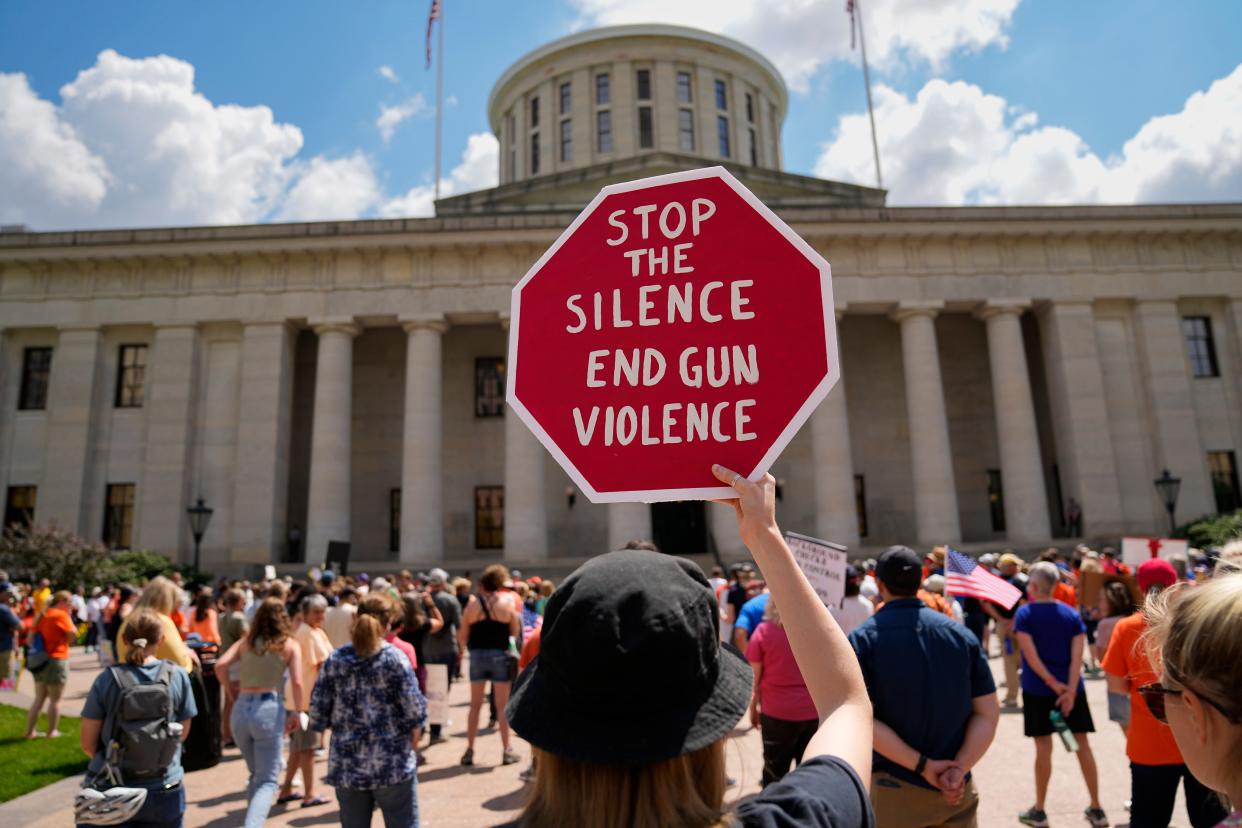Ohio Politics Explained podcast: Gun laws at the local, state and federal levels

Ohioans started carrying concealed weapons without permits this week. Federal lawmakers worked on a gun control compromise, and Columbus thinks it's found a way around state law.
We break down what it all means on this week's episode of Ohio Politics Explained.
It's a podcast from the USA TODAY Network Ohio Bureau where we catch you up on the state's political news in 15 minutes or less. This week, host Anna Staver was joined by reporter Laura Bischoff.
1) Constitutional or permitless carry takes effect
Ohioans no longer need permits to carry concealed weapons, and they don't have to tell an officer they're carrying unless asked.
The new law, called constitutional carry by supporters and permitless carry by opponents, went into effect on Monday for adults aged 21 years or older who are legally allowed to own a gun.
Court data obtained by the USA Today Network Ohio Bureau and the Cincinnati Enquirer showed young Black men had been the group most likely to be charged with unlawfully concealing a weapon.
2) Federal gun deal
A bipartisan group of senators, which includes Ohio Sen. Rob Portman, R-Terrace Park, say they have an agreement on gun control legislation.
The group said its plan "increases needed mental health resources, improves school safety and support for students, and helps ensure dangerous criminals and those who are adjudicated as mentally ill can’t purchase weapons."
Nine other Republican senators have signed on, which means there are enough votes to break a filibuster and potentially pass the first significant piece of gun control legislation in 30 years.
3) Columbus vs. Ohio
State law prevents Ohio's cities from enacting their own gun control legislation, but Columbus may have found a loophole.
City Attorney Zach Klein suggested that perhaps the Columbus Board of Health could use existing laws about public nuisances to enact gun controls because gun violence is a public health crisis.
Legal experts aren't sure this would work, but that may not stop the city from trying.
4) Biden's executive orders
President Joe Biden issued two executive orders this week that protect LGBTQ Americans generally and transgender children specifically.
The orders direct the Department of Health and Human Services to ensure no federal dollars are used for "conversion therapies," and they direct the Department of Education to ensure schools "promote safe and inclusive learning environments."
Supporters say the orders didn't break new legal ground. Instead, they show a commitment to follow Supreme Court precedent and federal law.
But opponents say, the president's executive orders on LGBTQ issues since taking office have overstepped.
Attorney General Dave Yost signed a letter this week, asking the president to withdraw similar guidance to the Department of Agriculture that said discrimination includes sexual orientation and gender identity.
"Using hungry children as a human shield in a policy dispute violates basic decency," Yost said.
Listen to "Ohio Politics Explained" on Spotify, Apple, Google Podcasts and TuneIn Radio. The episode is also available by clicking the link in this article.
The USA TODAY Network Ohio Bureau serves The Columbus Dispatch, Cincinnati Enquirer, Akron Beacon Journal and 18 other affiliated news organizations across Ohio.
This article originally appeared on The Columbus Dispatch: Ohio Politics podcast: Gun laws at the local, state and federal levels

